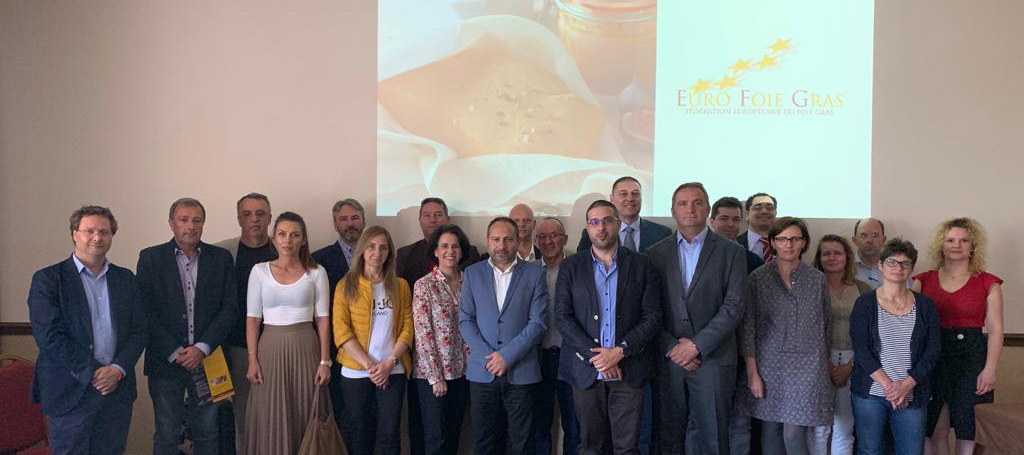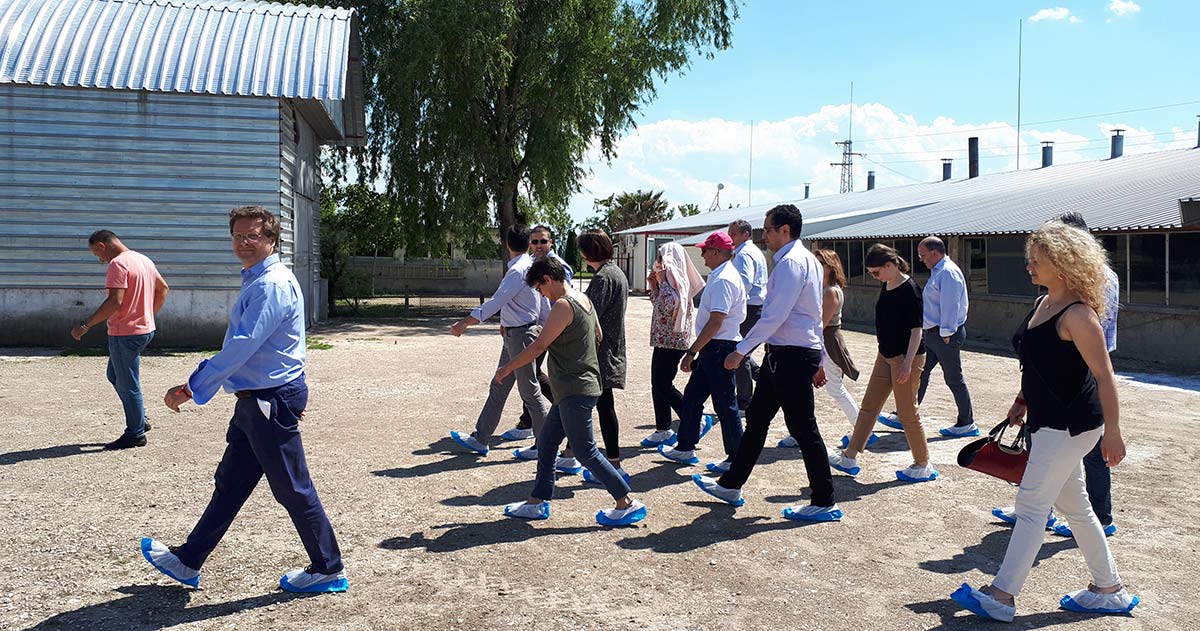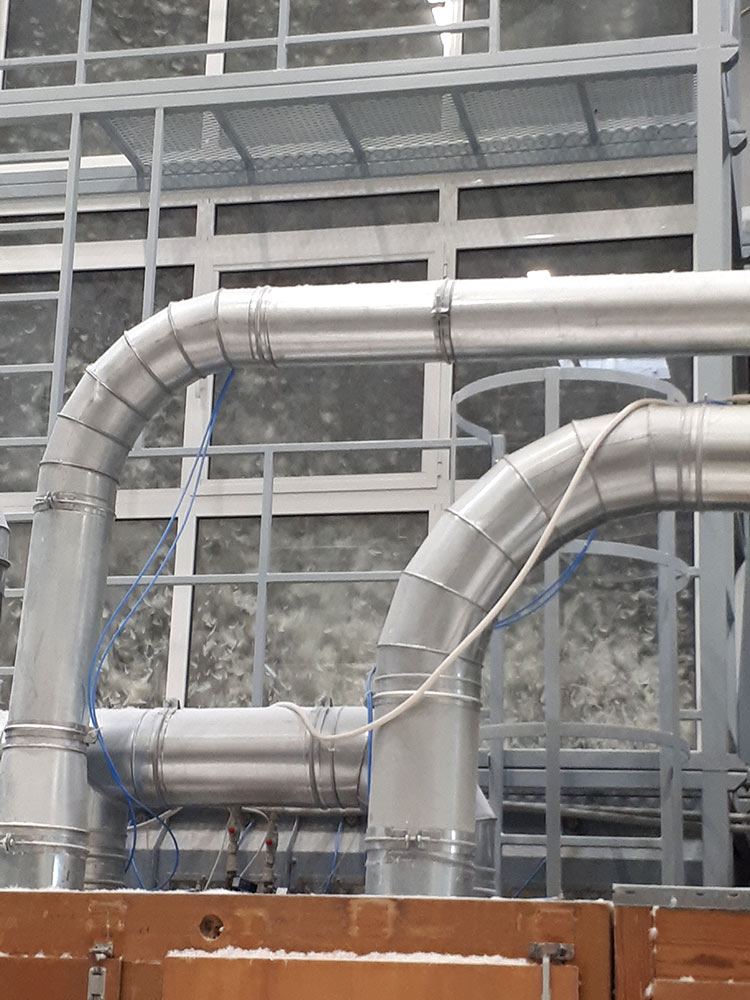Freshly released NutriRECS consortium dietary advice updates on red and processed meats: a turning point in a longstanding controversy?
Opinion piece by Prof. Frédéric Leroy
Brussels, 16 October 2019 – Although we are surrounded by an overwhelming abundance and variety of foods, the simple daily act of eating remains a problematic struggle. In a highly normative society, we are continuously being reminded of our poor eating habits. The animal/plant divide in dietary preconceptions seems to be an important part of the mindset, suggesting a cultural rather than a factual perspective on eating right. Whilst the Western diet is clearly causing havoc and undermining public health, even the dietary guidelines usually put a disproportionate emphasis on the need to reduce the consumption of red meat and the products derived thereof. This is remarkable, to say the least, as red meat is a valuable nutrient-dense food and a key component of our evolutionary diets. It has been consumed since the origin of our genus, sometimes in formidable amounts. By 1.5 million years ago, we became largely adapted to meat eating, both anatomically and physiologically, and could not have survived without it.

This opinion piece is authored by Prof. Dr. ir. Frederic LEROY,
Vrije Universiteit Brussel
#MEATTHEFACTS: European Livestock Voice sets to balance the debate around livestock production
23/09/2019
Euro Foie Gras is proud to be a part of the European Livestock Voice initiative that was launched today in the European Parliament. Please find below the official press release for the event !
PRESS RELEASE
The livestock sector is today at the epicentre of public debates in Europe and beyond. These debates are now mainly dominated by interest groups who spread myths and radical views about livestock farming. Ever increasing on social media and in the press, these myths and opinions end up portraying a picture that is in stark contrast with the reality experienced and lived every day by thousands of European farmers and professionals on the ground. These debates have strong impacts on the views of European consumers on the role of animal products in their lifestyle choices and they push the livestock sector into an extremely defensive corner of society. This negatively affects the EU livestock farming model and policy framework, increasing the challenges faced by our farming communities to ensure their economic viability, generational renewal and their capacity to adapt to societal and environmental demands.
In this context, and for the first time at EU level, over a dozen livestock organisations have decided to come together to take joint action to elevate the “other side” of the story, necessary to restore balance and factual information on both the impact and the contribution of the European livestock sector. With this objective in mind, European Livestock Voice has developed its own information hub, an online portal reviewing the accuracy of the most frequently made statements about livestock production, consumption and its benefits:
NO – 1kg of beef does not require 15,000L of drinking water to be produced
YES – The average size for livestock farms in Europe is below 50 hectares and Europe remains a model of family farming
NO – Using land for animal feed does not necessarily compete with land for human food
YES – European farmers care for their animals as it is fully in their interest to do so.
We are convinced that the EU livestock farming model, based on diversified, local and family farm structures, is the backbone of the EU’s rural areas. It supports a great number of jobs and industries, it contributes to the circular approach within the EU bioeconomy, while also ensuring a steady and affordable supply for sufficient, safe and nutritious food, as well as many other products and by-products, needed for a healthy lifestyle or Europe’s cultural and creative industries.
Removing livestock farming from Europe – a “Livestock Exit” – would have severe consequences. Europe without livestock would lose essential pasture lands, face increased forest fires, lack greatly in organic fertilisers, green energy and many other essential raw materials while contributing to an increased rural exodus. At the same time, it would mean the need to rely on imports for animal products, with virtually no control over the production standards and increasing the demand for fossil fuel-based materials.
To support the launch of this initiative two newly appointed MEPs, also livestock farmers, Alexander Bernhuber (EPP, AT) and Jeremy Decerle (Renew Europe, FR) have decided to lead the debate in the new European Parliament by hosting the launch event of our platform today in Brussels.
For MEP Alexander Bernhuber the situation is clear “Today’s debate about livestock farming is often held on a lack of knowledge within the society. The gap between consumers and producers is getting bigger and bigger. European farmers produce at worldwide highest animal welfare standards. Nowadays the challenge is to communicate the essential work of our farmers via several channels to the consumer. European Livestock Voice created a significant platform to brighten this issue and fight against disinformation at European level. It is important to spread fact-based knowledge about today’s livestock farming within the media. Hence, I strongly support this initiative.”
On his side, MEP Jérémy Decerle commenting on the initiative said that “As a breeder of Charolais cows, but also as a Member of the European Parliament (COM AGRI), I can only welcome the launch of such a European platform, specifically dedicated to livestock farming. It could help to dispel some preconceived ideas about this profession and bring a little pragmatism into the debates. At a time when Europeans want to eat healthier and more local food, but also to better preserve their environment, farmers can be part of the solution rather than part of the problem, and the search for solutions begins with a comprehensive and rational look at the situation.“
MEP Clara Eugenia Aguilera García on her side commented “This initiative is a positive signal helping us in the European Parliament in our work to defend the EU livestock sector. The European livestock community works hard to ensure quality, sustainability and animal health and welfare. It has to be recognized while keeping a level playing field. Given the ever-increasing number of misconceptions, more work is needed to restore a constructive and rational discussion around a sector so important to our rural areas, our environment and our future.”
Discover the foie gras production in Wallonia on June 22 and 23!
Like every year, several foie gras farms will open their doors for the Open Farm Days which will take place on the 22nd and 23rd of June throughout Wallonia. Guided tours, discovery of the different production phases, discussion on the profession, tasting of good local products and fun activities will be on the program. Passionate breeders, who are proud of their know-how, will be happy to welcome you and answer your questions.
All information on: https://jfo.be/
More information about Walloon foie gras: https://www.facebook.com/FoieGrasWallon/
Euro Foie Gras shows off its ambitions in the light of EU elections
It was in Plovdiv, a city full of history, that the Euro Foie Gras General Assembly took place on May 20 and 21, 2019. Combining discovery of the region and important decisions for the European foie gras sector, this General Assembly was a success.
Euro Foie Gras members welcomed the record level reached in 2018 by foie gras exports from the 5 European producing countries to third countries. With a turnover of 82 million euros, European exports worldwide rose by 58% in value compared to 2018, especially to Japan. Another reason for satisfaction: in 10 years, Hungary has doubled its internal consumption and increased its exports to neighboring countries such as the Czech Republic, Slovakia and Serbia. The key figures of the sector are part of the information that can be found on the new Euro Foie Gras website. Interactive and modern, it gives information on all facets of the sector : waterfowl-based products, the different phases of production and also the numerous commitments of the Federation in terms of quality, health and animal welfare.
The General Assembly made important decisions for the sector. Euro Foie Gras members decided to collect and share forecast data for the production of fat palmipeds. This will be a very useful anticipation tool to help operators make decisions.
In addition, Euro Foie Gras members wish to work collectively, with the support of an independent research organization, on common animal welfare indicators and their regular monitoring. It may be recalled that Euro Foie Gras has had since 2011 a European Charter on breeding of waterfowl for foie gras, which sets out the commitments that must govern the production already subject to European legislation on animal welfare.
The General Assembly was punctuated by visits to a foie gras farm as well as a feather and down upgrading plant. « European voters will go to the polls in a few days. By making strong decisions in Plovdiv, the European Capital of Culture this year, we are participating in our own way in building the European Union », concluded Christophe Barrailh, President of Euro Foie Gras.



The Euro Foie Gras General Assembly will meet in the European Capital of Culture
A must for European gastronomy, foie gras will be perfectly represented in this magnificent Bulgarian city, which is recognized for its authenticity and cultural heritage. Bulgaria is currently the 2nd largest European producer of duck foie gras with 2800 tonnes produced in 2018.
The General Assembly will be the opportunity to gather friends of foie gras to review the past year and future perspectives on various topics: European elections, health and animal welfare, communication strategy etc. A visit of the city as well as a breeding will also be organized.
This attractive program will allow participants to meet for two days around the foie gras in a cultural and friendly place, in perfect harmony with the vision of Euro Foie Gras.
Stop misinformation on foie gras production
Since its creation in 2008, Euro Foie Gras has been proud to promote the profession of foie gras producer, foie gras being a star dish of the gastronomic heritage of our continent. The continuous exchange of experiences and know-how within the federation is and will remain of paramount importance for the sector, as well as the awareness raising of policy makers to the issues the sector deals with.
Euro Foie Gras has always encouraged constructive dialogue on production conditions, biosafety standards, quality criteria and any other subject of interest to the federation. Euro Foie Gras has also always been open to critics which are an integral part of the democratic debate.
Nevertheless, we must not confuse on the one hand, criticism and rational questioning with regard to an agricultural sector or any other economic activity, and, on the other hand, actions of misinformation based on false statements and truncated images. The digital age unfortunately generates a favorable environment for sensational publications from associations that cultivate a conflictual relationship with reality on the ground and often exploit the public’s lack of knowledge about the production of foie gras.
Ban of assisted-feeding in Flanders
The European Foie Gras Federation – Euro Foie Gras – would like to express its deep indignation regarding the adoption by the Flemish Parliament (Belgium) on Wednesday 13 March 2019 of a decree banning fattening in the production of foie gras.
Euro Foie Gras denounces a vote based on a lack of knowledge on the production process and prejudices, in particular those generated by erroneous ideas and images deliberately disseminated by animal activists.
Belgium is a foie gras producing country with farms spread all over the country. Belgians, 2nd largest consumers of foie gras in Europe after France with 90 grams per inhabitant per year, appreciate this quality dish. Many Belgian chefs work on this exceptional product, which is part of the gastronomic heritage in France and Hungary.
Why did elected officials want to deprive their fellow citizens of the choice of being able to consume a local and high-quality product when foie gras comes from traditional know-how practiced with control and respect for animal welfare? Euro Foie Gras would like to remind you that ducks live 90% of their lives outdoors before the fattening phase, which lasts between 10 and 14 days, with two meals a day. The fattening phase is only possible because foie gras palmipeds have the natural ability to store fat in order to be able to carry out long migratory journeys. The meal is only administered after checking that the animal has digested its previous meal.
“It is absolutely scandalous that public money is used to stop a perfectly legal activity! And this only in order to serve political ambitions, as this strangely ideal timing shows! [Next regional elections will take place in May 2019 in Belgium and animal welfare is a regional competence ed.] “said Christophe Barrailh, President of Euro Foie Gras.
The idea that foie gras production is contrary to animal welfare is also totally unfounded. The compatibility of assisted feeding with the welfare of palmipeds is demonstrated by a series of independent studies[1], constantly ignored by those who misinform the general public by leading them into an anthropomorphic perception of the animal, whereas the latter, although sentient, remains nevertheless different from human beings because of its particular anatomical characteristics: absence of glottis and elastic oesophagus which can stretch without any suffering. Belgian producers set an example in terms of animal welfare, their good practices being certified by public services. They therefore do not understand this persecution of their production when their animals enjoy a level of welfare that meets the most demanding criteria in the world.
Euro Foie Gras would like to express its full support for Filip Callemeyn, the only producer of foie gras palmipeds in Flanders, and strongly denounces this decision, which will deprive him and his wife of an activity in which they have invested their time and passion for over 20 years. In love with his profession and proud of his farm, Filip organizes several times a year visits and festive events to introduce the general public to the reality of his work. Unfortunately, his seriousness and rigorous deontology did not protect him from defamatory attacks from associations quicker to take media action than to study the reality on the ground, or from pre-election demagogic initiatives.
While reiterating its indignation at the recent Flemish decree, Euro Foie Gras will continue to provide transparent and accurate information on how foie gras is produced and will also continue to promote the profession of foie gras producer in Belgium and throughout Europe.
[1]
Among which:
– Z Erisir & al. 2009, “Effect of different housing systems on growth and welfare of Pekin ducks”, Journal of Animal and Veterinary Advances 8(2).
– MS Dawkins, 2012, “Commercial scale research and assessment of poultry welfare”, British Poultry Science
– E Baéza & collab., 2005, “Canards de Barbarie, Pékin et leurs hybrides: aptitude à l’engraissement », INRA Productions
– P. Chartrin & collab.,2004, « Effet du génotype et du gavage sur les dépôts de lipides intramusculaires dans le filet de canard », Viandes et Produits Carnés, Hors-série des 10e Journées des Sciences du Muscle et Technologies des Viandes »
